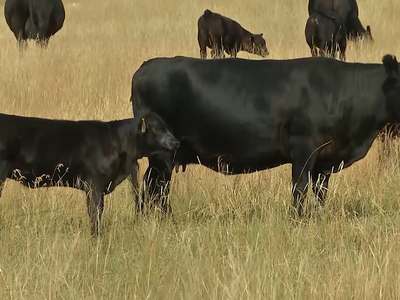Bee Death & Horticultural Agreements
Bee Death & Horticultural Agreements plus Food Forethought. I’m Greg Martin with today’s Northwest Report.
Fifty-five trees in a Wilsonville, Oregon parking lot were recently sprayed to combat aphids. Now an estimated 25,000 bumblebees have been found dead or dying as a direct result of the spraying. The Oregon Department of Agriculture, City of Wilsonville, City of Sherwood, Xerces Society, and Valent USA have been working together on prevention and recovery efforts in the wake of the bee death discovery. Crews are placing bee-proof netting on the trees to keep the bees away from the trees.
Two potential trade agreements could help horticultural exports. USDA economist, John Wainio, notes how important export markets are for our nation's fruit and vegetable producers.
WAINIO: The potential for increasing produce particularly to Japan appears to be quite high. What we were interested in looking at first of all what are we importing and exporting in the way of produce with each country and second with respect to our exports what sort of tariffs do we currently face in these countries. Are there products that could be expanded in the tariffs were reduced. We point out that exports are huge for a number of U.S. horticultural products. Among them almonds, pistachios, walnuts, canned cherries, raisins, fresh grapefruit, fresh oranges. Anywhere from a third to two-thirds of our total supply actually ends up on overseas markets in those commodities.
Now with today’s Food Forethought, here’s Lacy Gray.
What Happened? That’s what everyone within the agriculture community is wondering now about the House Farm Bill that went down in flames last week. Once again, massive expansion of the food stamp program was the major cause of the disagreement that caused the farm bill’s downfall. So, what now? Well, they can extend yet again the current 2008 farm bill programs, but that would more than likely go over like a lead balloon, and the Senate probably won’t slide with that. Current programs could be allowed to expire and everything can go back to 1949 law, which would create utter chaos among agricultural sectors and leave consumers scrambling to figure out how they’re going to pay for soaring food prices, or House Ag Committee Chair Frank Lucas can go back to the Ag Committee and try to rework the existing bill, which is more than likely what will happen. Lucas said after the farm bill’s defeat Thursday that they were assessing all of their options, and he had no doubt that they will finish their work in the near future and provide the certainty that farmers, ranchers and rural constituents need. That’s starting to ring just a little hollow by now.
Thanks Lacy. That’s today’s Northwest Report. I’m Greg Martin on the Ag Information Network.














